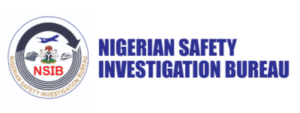
Rep. seeks special forex intervention for local airlines
Rep. Nnolim Nnaji has urged the Central Bank of Nigeria (CBN) to approve a Special Forex Intervention Retail Sales for airlines in the country.
Nnaji, who is the Chairman, House Committee on Aviation, made the call during the 25th Annual Conference and Awards Ceremony, orgainsed by the League of Aviation and Airports Correspondents (LAAC) in Lagos on Friday.
Nnaji said that the forex intervention by the Apex bank would ensure easy access to Forex by the airlines to settle their obligations and reduce airfares.
The lawmaker said the operators had been complaining about their inability to access the required Foreign Exchange to settle the backlog of their obligations which had adversely affected their operations.
He said the access to forex was important because aviation sector was critical to the nation’s economy.
Nnaji said that the CBN should take the right decision that would strengthen existing airlines and inspire confidence in aspiring operators.
He said: “We have succeeded in getting zero duties for the airlines for the purchase of spare parts. Another issue that they are battling with is the issue of forex.
“Since they buy most of the aircraft spare parts abroad, it is important that they have access to forex.
“This is because the aircraft need to be in the sky all the time because the more you move, the more money you make so that you can pay their bills.
“We would want the Central Bank of Nigeria to create a window for Forex because it will help reduce the airfare in the long run.”
Nnaji said he did not know how the ban on Forex to Bureau De Change would affect airlines, but he had learnt that the black market rate had gone up.
According to him, the federal government did not do much in terms of bailout for the airlines.
He said that the cost of the engine of a Boeing aircraft was close to $10 million and what the government provided for all the local airlines was about N4 billion.
“When you compare what our airlines got to other countries, you will find out that they didn’t do much for the industry.
“The aviation industry is a very expensive business and most people do not break even.
“What they just succeed in doing is to just keep the business going because everything about the industry is offshore and that is a challenge,” he said.



